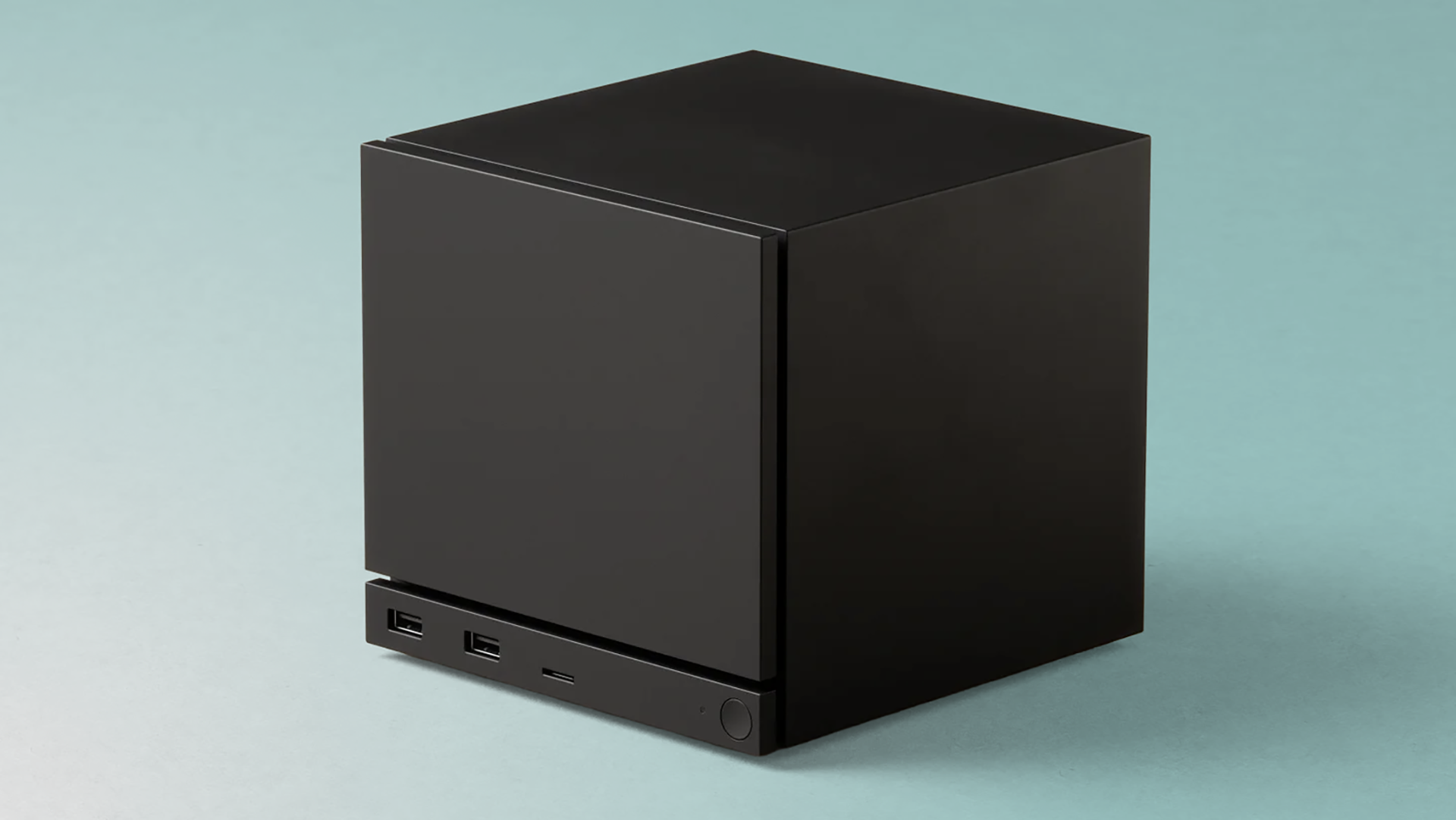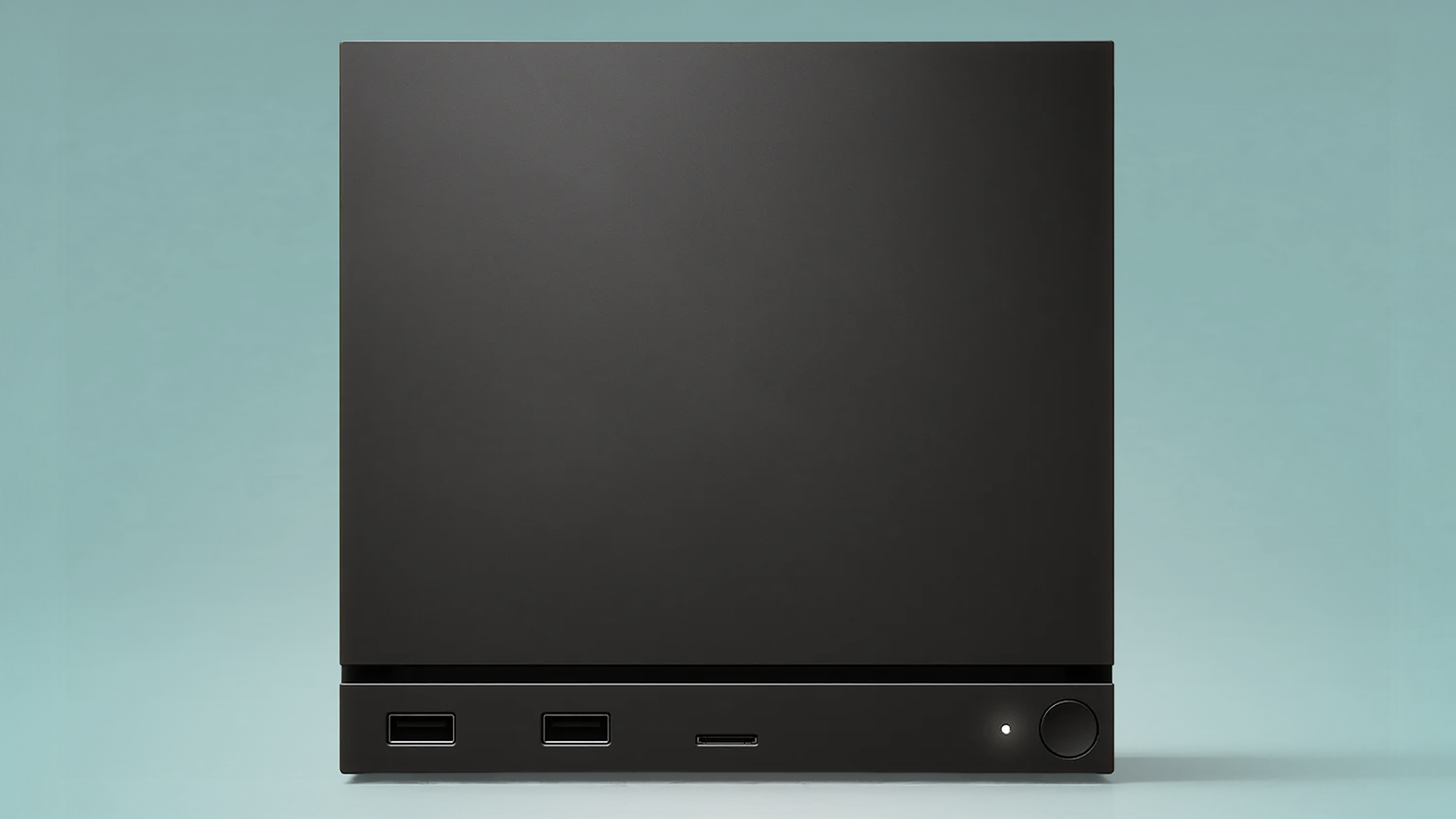I couldn't be more excited about the Steam Machine – but part of me worries it could be another Xbox Series S
The world of consoles is a very different one


Get all the latest news, reviews, deals and buying guides on gorgeous tech, home and active products from the T3 experts
You are now subscribed
Your newsletter sign-up was successful
It was becoming something of an open secret that Valve had some big hardware news to share this week, so I wasn't exactly blown away with surprise when it dropped news of three new devices coming out in early 2026. The new Steam Controller, Steam Frame and Steam Machine all make perfect sense as expansions of the Steam footprint, and each is interesting in its own right.
When you know a little about Valve's history, though, and the current state of the console market, it's hard to overlook how intriguing the Steam Machine is specifically, though. This is Valve basically taking Xbox and PlayStation on at their own game, and it's going to be fascinating to see how it plays out.
Follow T3.com on Google News to keep our latest news, insights, and features at the top of your feeds!
The Steam Machine is a PC, and there's no two ways around that, but it's one that should offer as tight and slick an experience on your TV as the Steam Deck (or other SteamOS devices like the Lenovo Legion Go S SteamOS) do in your hands. It'll still have the backup of being completely customisable, though, and that knowledge will be huge for enthusiasts who might want to sideload or wipe it with their own software.
Most people will use it without doing any of that, though, and simply stick to the mission that Valve seems to be setting – play your Steam games on bigger displays (including 4K TVs) without compromise.
That's where things get really interesting, frankly. We're living through a console generation that has demonstrated how hardware can age in different ways. While the PS5 and Xbox Series X are out there still performing ably with new games, the Xbox Series S is starting to lag behind in a big way, just as some predicted it would.
It's often limited to 30fps in newer titles, and generally doesn't output much more than 1080p at a stretch, which isn't the most impressive performance all in all, despite the value it offers.
Now, comparing the Steam Machine to the Series S might seem harsh, and I should be clear that specs-wise, I'm not really trying to do so. The Steam Machine has more power under its hood, in the form of an AMD Zen 4 processor and its semi-custom RDNA 3 GPU, and will therefore far outperform the Series S.
Get all the latest news, reviews, deals and buying guides on gorgeous tech, home and active products from the T3 experts
However, where I think the comparison does bear some weight is in acknowledging that the Steam Machine won't be filled with the newest tech when it arrives in 2026. We're expecting RDNA 5 fairly soon, and while 8GB of VRAM is solid enough, plenty of recent games have demonstrated that more can be a huge benefit in power terms.
Those who've managed to test its capabilities a little have uniformly reported that 4K gaming in intensive titles was pretty dependent on upscaling, and Valve isn't trying to hide that. In native terms, 1080p seems like a more likely fit if you don't want to use AMD's FSR tech.
The GPU is just one way in which the Steam Machine will be fixed in time (unless Valve plans to frequently update its internals and just isn't saying so yet). The Steam Deck already used this playbook to great success, but we're now at the stage where its performance is also looking a little underbaked compared to newer and more expensive handheld options.
So, my worry is this: the Steam Machine will be a supreme little PC for home use, and will excel for a couple of years as a hopefully great-value way to play games on your bigger screens without worrying about building your own rig. Then, whether it's 12 or 24 months down the line, it might start to look underpowered, and people might realise that a self-build could have been the more economical option in the long run.

Of course, there's one massive unknown when it comes to working any of this out – the price. Valve might have invited some people to test its new devices before unveiling them, but nobody got a hint about pricing. My strong suspicion is that the Steam Machine, at least, will come in well under £1,000 – but possibly still land around the price of a PS5 Pro or slightly higher.
If we take £700 or $700 as our estimate, then, how might that play out? When you fork out that amount of cash on a PS5 Pro, you have the assurance that most of the game development world is making games that will have specific settings for your exact hardware.
In the Steam Machine's case, though, things will be more complicated, because it's a PC – and performance is always pretty case-by-case in that world. Will developers make specific performance presets for Steam Machine users? Perhaps, but will the desktop box sell enough units to keep them doing that years down the line?
All of this is speculative, but I can't help worrying that the Steam Machine will age less gracefully than its handheld sibling. Valve's tried and failed to break into the big-screen market before, though, and seems to have learned a heap of lessons. I'm super eager to get my hands on the Steam Machine (and the other launches), to see if it can dispel my fears.

Max is T3's Staff Writer for the Tech section – with years of experience reporting on tech and entertainment. He's also a gaming expert, both with the games themselves and in testing accessories and consoles, having previously flexed that expertise at Pocket-lint as a features editor.
You must confirm your public display name before commenting
Please logout and then login again, you will then be prompted to enter your display name.

